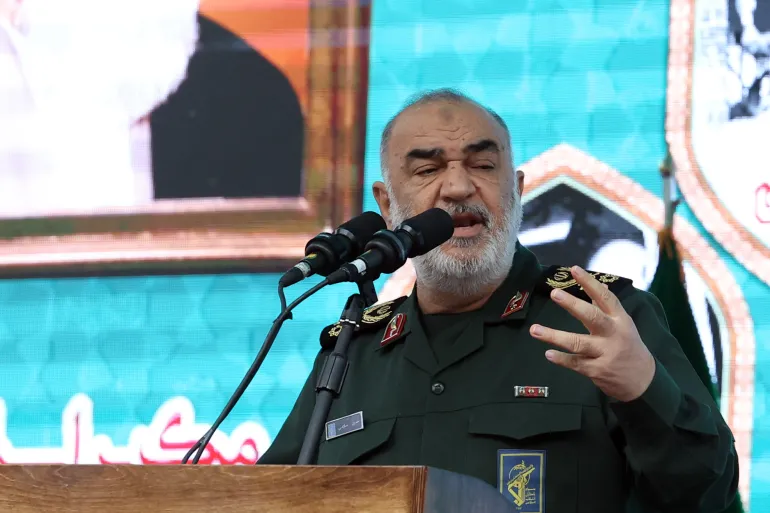Major-General Hossein Salami, the commander-in-chief of Iran’s elite Islamic Revolutionary Guard Corps (IRGC), was confirmed killed in Israel’s large-scale airstrikes that began on Thursday. The loss marks a significant blow to Iran’s military leadership, as Salami was a close ally of Supreme Leader Ayatollah Ali Khamenei and a key architect of Iran’s regional defense and strategic operations.
Salami’s military journey began during the Iran-Iraq War (1980–1988), where he gained battlefield experience and quickly climbed the ranks within the IRGC. His performance during the conflict earned him a reputation for loyalty and tactical acumen, which later propelled him into top leadership roles.
In 2005, he was appointed commander of the IRGC Aerospace Force, where he oversaw Iran’s ballistic missile and drone development programs. Four years later, he became the IRGC’s deputy commander and eventually assumed full command in 2019, succeeding Mohammad Ali Jafari.
Salami’s influence extended far beyond Iran’s borders. Under his leadership, Iran bolstered the “Axis of Resistance”—an alliance of governments and armed groups across the region that operate with Iranian support. This includes the Syrian government under Bashar al-Assad, Hezbollah in Lebanon, Hamas in Palestine, the Houthi rebels in Yemen, and several Shia militias in Iraq.
READ MORE:
Iranian Missile Strike Targets IDF Headquarters in Tel Aviv
Internationally, Salami was sanctioned by the United States in 2007 and by the United Nations Security Council in 2006 for his role in Iran’s missile development. Canada imposed sanctions on him for his actions during Iran’s 2022 anti-government protests, while the European Union targeted him for supplying drones to Russia for use in the Ukraine conflict.
A vocal proponent of Iran’s global defense strategy, Salami once stated, “We shall fight them [our enemies] on the global level, not just in one spot. Our war is not a local war. We have plans to defeat the world powers.”
Following his assassination, the IRGC issued a public statement mourning the death of their “loyal and steadfast commander.” Iranian state media reported that Salami died in one of several Israeli airstrikes that also killed numerous senior military figures and nuclear scientists.
In response, Iran launched ballistic missile strikes on Israel—employing the very weapons systems that Salami had helped develop during his tenure as aerospace commander. Ahmad Vahidi has been named as his successor.
While Salami’s death creates a temporary leadership void, analysts suggest that Iran’s military infrastructure, strategic continuity, and nuclear expertise remain largely intact.


